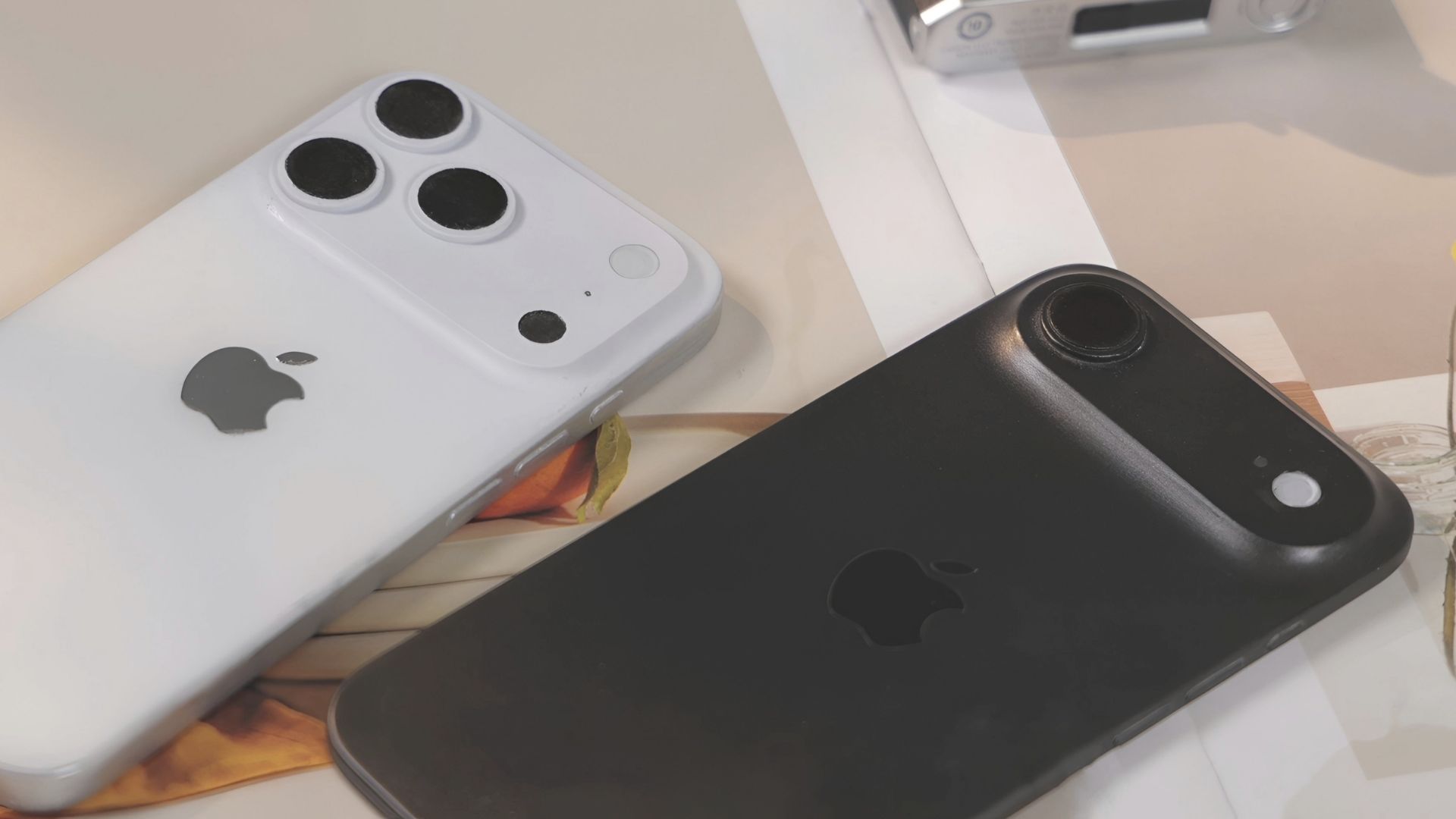iPhone 17 Air leak shows impossibly sturdy frame, but don't put your "bendgate" fears to bed just yet
The iPhone 17 Air might not be doomed to repeat the past, after all

Rumored to be only 5.5mm thick, the upcoming iPhone 17 Air will be Apple's slimmest phone since the infamous iPhone 6, but can its reported titanium-aluminum frame help Apple avoid another "bendgate" disaster?
Footage shared to X last week by reputable leaker "Majin Bu" claims to show a mock-up of the iPhone 17 Air being put through an impromptu bend test and passing with flying colors.
Should it prove accurate, it's a clear indicator that Apple is taking durability seriously with its return to ultra-thin smartphones.
While the iPhone 17 Air hasn't been officially announced yet, we've seen a boatload of rumors about it, including leaked images of the design. The dummy unit shown in the video certainly matches up to what we've seen so far, but can we expect the real deal to stand up to similar levels of punishment?
Maybe we shouldn't put our "bendgate" fears to bed just yet.
See also: Best Apple deals in May 2025
iPhone 17 Air leak could be good news for Apple
On Friday, Majin Bu posted a video on X showing a bend test with a dummy version of the iPhone 17 Air.
Sign up to receive The Snapshot, a free special dispatch from Laptop Mag, in your inbox.
Despite repeated attempts, the mock-up barely flinches, a polar opposite outcome to Apple's previous iPhone 6 Plus, which controversially folded with ease during Unbox Therapy's famous "bendgate" video released in 2014.
Hopefully, this is an indicator that Apple has learned from its past mistakes with "bendgate," and devised a way to make the iPhone 17 Air significantly more durable than the iPhone 6 Plus.
The iPad Pro M4 gives us reason to be optimistic, at least, since its ultra-thin chassis reportedly uses a new internal ribbing design that helps prevent bending.
iPhone 17 Air Bend Test pic.twitter.com/gEZbYNkQU3May 23, 2025
However, you might not want to get your hopes up just yet. Keep in mind, the "phone" in this video is not an actual iPhone 17 Air, or even a phone at all. It's a pre-production "dummy," meaning it's a model based on the actual phone, or at least appears to be.
Since this isn't coming directly from Apple, we can't confirm how accurate the design or build quality of this mock-up is, regardless of how much it resembles previously leaked images of the iPhone 17 Air.
That said, dummy units like this are sometimes solid through-and-through, designed to give third-party companies a better idea of the size, weight, or ergonomics of a device to aid with the design of accessories, like smartphone cases, well in advance of a product's release.
This lump of metal may pass the bend test with ease, but the actual iPhone 17 Air that is expected to hit store shelves later this year? That's another story entirely.
Durability isn't the only potential problem for the iPhone 17 Air
Even if this leaked video is an accurate representation of the iPhone 17 Air's resistance to bending, durability isn't the only concern surrounding this phone.
Battery life could also take a hit due to the Air's ultra-thin chassis. There's simply less space for a large battery compared to something like the iPhone 17 Pro. That may be why Apple is rumored to be introducing an AI-powered battery optimization feature, which may be able to help compensate for a physically smaller battery in the iPhone 17 Air.
The Samsung Galaxy S25 Edge may give us an idea of what to expect in terms of battery life. It features an ultra-thin design similar to the iPhone 17 Air, including a 3,900 mAh battery, which is notably smaller than the 4,900 mAh battery in the S25 Plus. It's possible we could see a similar reduction in battery size from the iPhone 17 or 17 Pro compared to the iPhone 17 Air.
We're keeping a close eye on all of the latest rumors and updates surrounding the iPhone 17, iOS 26 (formerly iOS 19), and WWDC 2025, so stay tuned for more info.
More from Laptop Mag
- iPhone 17 Air: Rumors are thick on the thinnest iPhone ever
- WWDC 2025 preview: iOS 26, Apple's video game plans, Apple Intelligence, Mac Pro M4 Ultra
- What separates a $1,000 iPhone from a $3,500 one? About 7,000 miles.

Stevie Bonifield is a freelance tech journalist who has written for PC Gamer, Tom's Guide, and Laptop Mag on everything from gaming to smartwatches. Outside of writing, Stevie loves indie games, TTRPGs, and building way too many custom keyboards.
